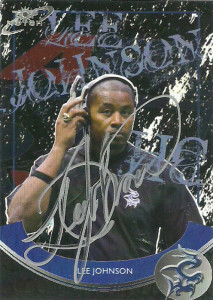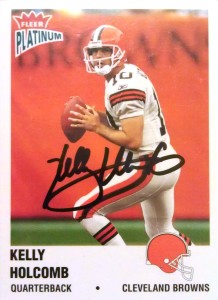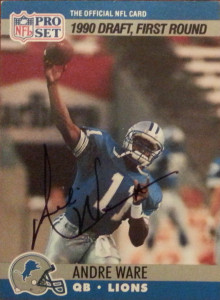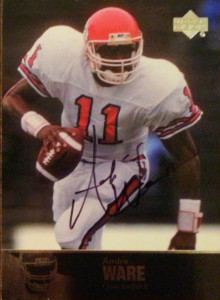 Card: TNT AFL 2014
Card: TNT AFL 2014
Acquired: IP 5/17/14, San Antonio Talons vs. New Orleans Voodoo
Coach Johnson is a veteran of many leagues as both a player and a coach. He’s spent time in the NFL, CFL, NFLE, and AFL. Among his highlights, Johnson coached the defensive line of the Berlin Thunder to two consecutive World Bowl Championships in both 2001 and 2002. He then coached the Denver Crush to the Arena Football Championship in 2004. After taking the reins of the Talons, he coached them to a 14-4 record and a division title, in 2012.
After the San Antonio Talons game against the Iowa Barnstormers I gave out my custom cards to many players on the field. It created such a stir that Coach Johnson came over and asked me where his was. After I joked with him a few seconds about sharing the same first name, he quickly extracted a promise from me to make a custom for him as well.
I arrived at the Talons game versus the Voodoo early as usual. After talking to the COO of the Talons and giving him a copy of the set, he went over to Lee to show him what I had done. Coach immediately came over and talked to me with a broad smile, signed the card and thanked me for the extras. He asked me what I wanted for the cards I made and gave to him, but as usual the most important thing for me is the autograph gracing the card for my own collection, and their enduring happiness and willingness to chase their dreams. You know, on that note, I have always subscribed to the ultimate belief that a true gift is one that is not expected, and for purposes of what I had given to each of these players I know it meant a lot to them.


 Andre Ware. Kudos to Andre for cheerfully signing 2 cards for me and Lance, even though he had his hands full with two kids by his side and all their stuff.
Andre Ware. Kudos to Andre for cheerfully signing 2 cards for me and Lance, even though he had his hands full with two kids by his side and all their stuff.